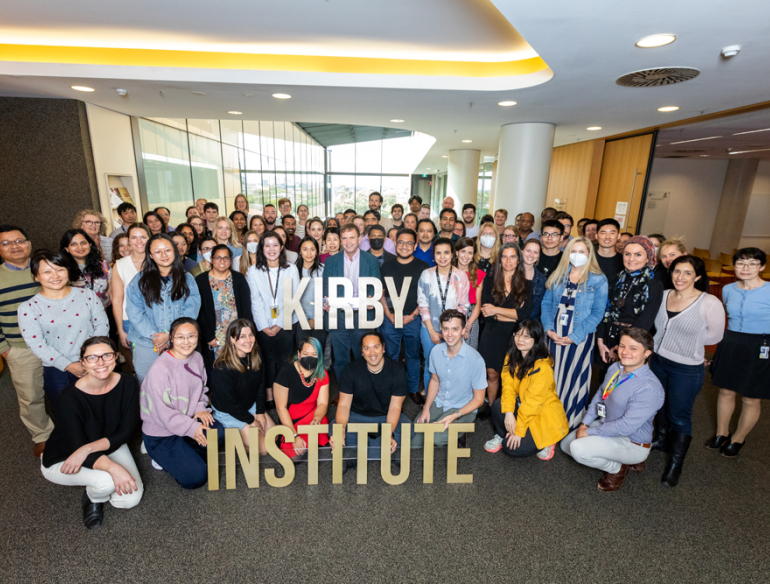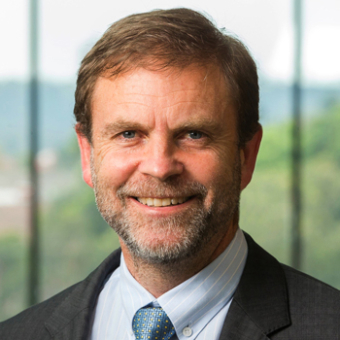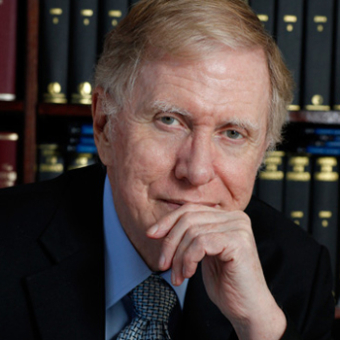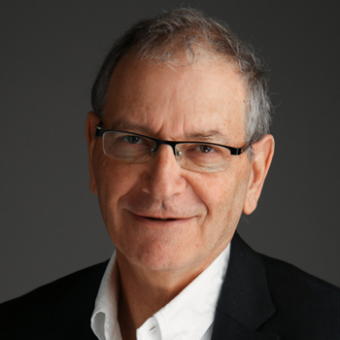We work to eliminate infectious diseases, globally. Our specialisation is in developing health solutions for the most at-risk communities. Doing so ultimately builds a safer, healthier world for everyone.
What makes these solutions unique is that they are designed to be scaled for maximum impact across diverse communities, populations, and regions. We do this via a highly successful, three step approach:
Understanding: the impacts of infectious diseases in individuals and populations.
Intervention: an holistic approach to developing, testing, and evaluating new strategies to prevent and treat infectious diseases.
Implementation: a consultative approach to working with affected and at-risk communities to deliver evidence-based health solutions.
Vision
A world free of infectious disease.
At the Kirby Institute, we are relentless in our pursuit of new and better ways to prevent, diagnose, and treat infectious disease.
Purpose
Ensure no infectious disease is left unchallenged.
Focused in Australia and the Asia-Pacific region – but with global impact – our work improves and protects human health, wellbeing, and ability to thrive. By understanding the way infectious diseases behave from the molecular through to the population level, we are also able to predict and plan for future threats and challenges.
Values
At the Kirby Institute, it is not just our outcomes that we are renowned for – it is also how we conduct our research. There are four values that are key to our success. They drive everything we do:
Equity: We believe all people deserve equal access to high-quality, accessible, and appropriate health care and prevention services – no matter who they are, where they were born, or which communities they belong to.
Impact: We work with people, for people. This ensures our research will have a direct impact, through transforming healthcare practice and policy.
Collaboration: We work with a diverse range of partners, including at-risk communities, governments, health care professionals, other research organisations, and industry, in Australia and abroad. This results in better-informed research and more effective solutions.
Excellence: We are committed to producing research that is innovative, rigorous, and reliable. Our excellence in research not only serves to inform the best possible solutions; it elevates our work to the global stage where it can transform health and save lives.
Our Director | |
| Scientia Professor Anthony (Tony) Kelleher is a clinician scientist who has been working in the field of HIV research and immunology for over 30 years. He is internationally renowned, having been involved with every HIV vaccine trial conducted in Australia as well as a number of phase I-IV clinical trials, especially those involving patients with primary infection. He has been with the Kirby Institute since 2001, and served as head of the Immunovirology and Pathogenesis Program from 2005 to 2025. Professor Kelleher was appointed Director of the Kirby Institute in January 2019. | |
Our Patron | |
| The Honourable Michael Kirby AC CMG has been the Kirby Institute’s Patron since 2011. When he retired from the High Court of Australia on 2 February 2009, Michael Kirby was Australia’s longest serving judge. Alongside his judicial achievements, Michael Kirby has served on many national and international bodies, including as a member of the World Health Organization’s Global Commission on AIDS (1988-1992); President of the International Commission of Jurists, Geneva (1995-1998); as UN Special Representative Human Rights in Cambodia (1993-1996); a member of the UNESCO International Bioethics Committee (1995-2005); a member of the High Commissioner for Human Rights’ Judicial Reference Group (2007-), a member of the UNAIDS Reference Group on HIV and Human Rights (2004-) and a member of UNSG's High-Level Panel on Access to Medicines (2015-16). He is currently chair of the Human Rights Institute of the International Bar Association in London (2018-). | |
Our Inaugural Director (1986–2018) | |
| Scientia Professor David Cooper AC FAA FAHMS was the inaugural director of the Kirby Institute. He passed away on 18 March 2018 after a short illness. Professor Cooper’s leadership in HIV research and treatment spanned more than three decades. His contributions were broad-ranging, covering basic, clinical and epidemiological research as well as membership on advisory groups to establish HIV treatment guidelines. He was a global advocate for regional engagement and capacity building for many years, particularly through clinical research. | |



